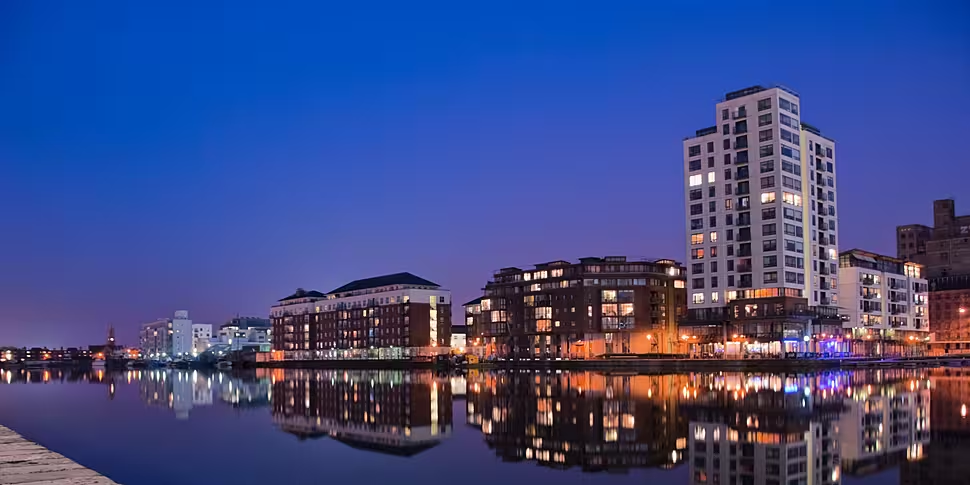A developer says he is worried Ireland could be 'scaring away' foreign capital that helps build our housing stock.
Brian Moran, senior managing director of Hines Ireland, says without larger investors the country could not afford to build homes.
Hines, one of the largest real estate developers in the world, has had a presence in Ireland for more than 10 years.
Its projects include Cherrywood Town Centre and the Central Plaza.
Mr Moran told Taking Stock that Ireland is a very attractive place for investors.
"Dublin, in fact, is the third biggest tech city - if you want - in Europe.
"So after London and Madrid, we actually have the highest cohort of workers in the tech sector - so there's a lot of very good issues around growth and an opportunity to invest money, for the long-term, that attracted us to this market.
"I recognise the emotive challenge that is out there for people who are struggling to pay rent, who see the challenge in viability that's there.
"And the reality is you can't lose sight of the logic behind it...viability has become a huge issue for delivery.
"The cost of construction today - relative to any time in history - and the quality of what we've to build now is very, very expensive.
"And therefore there's a lack of realisation that the new product that we have to build is actually very expensive to produce - and indeed expensive to rent out and to sell in due course."
'Accused of being a vulture fund'
But he says some investors are planning on 'skipping' Ireland, which could affect stock even further.
"I think that investors that are here will probably stay the course, and recognise that development is challenging.
"But I'm certainly aware of a number of large European investors who are saying 'We will give Ireland a skip'.
"Because getting involved in being accused of being a vulture fund - when that's the furthest thing that they are - is something they don't want to get accused of.
"We've to be very careful what we wish for here: if we scare away this money, we will end up drifting back to higher-cost money.
"And if that happens, then many projects won't be viable anymore".
But he denies his firm, and others like him, are taking advantage of the housing situation.
"I think that's unfair, in the first instance, but I also think it's using an emotive response and moving away from the logic.
"The logic... is we badly, badly need an awful lot more housing and an awful lot more small units - and in particular to rent.
"And if we don't do that, the housing crisis is going to get a lot worse".
Institutional investors 'a positive'
And Mr Moran says he sees institutional investors here as a positive.
"If you go back in time apartments in particular, at any point in time, there was only about 20% of them ever sold to owner-occupiers - 80% always went to investors.
"But they tend to be private investors; that's now obviously replaced by more longer-term institutional investors - which is a positive.
"But it's often seen in the market currently as a negative.
"But if we don't see that supply coming through the numbers... will even get worse."
He says up to €9bn a year needs to come into Ireland to deliver the housing that is required.
"What we need to do is make sure that the capital coming in is longer-term, lower cost - more money that has a focus on the social delivery of all the other things.
"Not just the housing but prepared to invest in other things alongside that: the amenities, the parks, etc.
"If we don't attract the right type of capital, it'll become more expensive, it'll make certain projects unviable.
"And I'm very, very nervous when I hear the discourse on the radio - and indeed with certain politicians - around scaring away this capital.
"We do not have it here in Ireland, we don't have the capital needed to build the housing stock we need".









